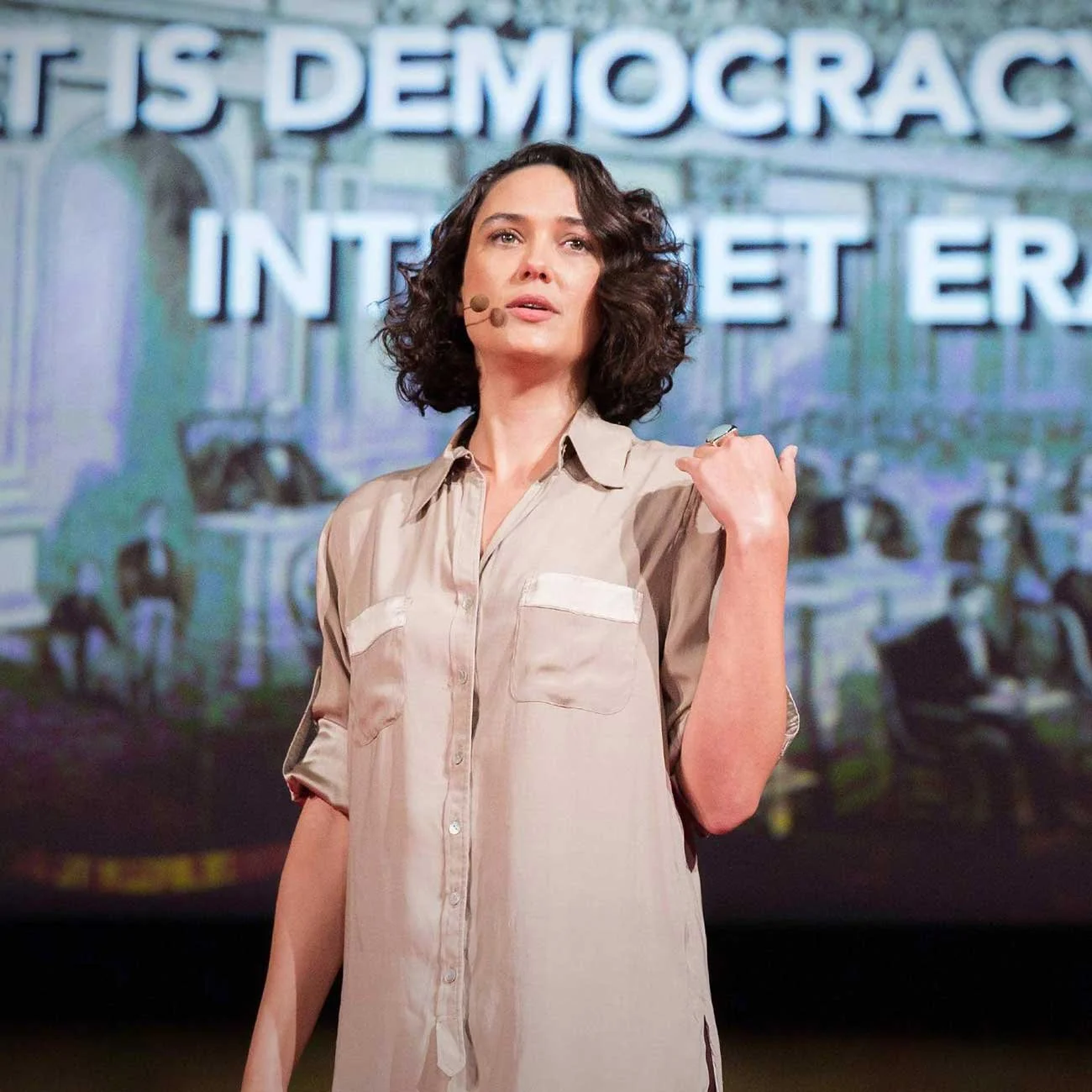Tansy E. Hoskins is an award winning author and journalist who investigates the global fashion industry. She’s the author of The Anti-Capitalist Book Of Fashion, Foot Work, and Stitched Up. This work has taken her to Bangladesh, India, North Macedonia, and to the Topshop warehouses in Solihull.
TANSY E. HOSKINS
I definitely believe at the moment that fashion brands, big fashion in particular, they just exist to exploit people. It's an excuse to exploit the poor, basically. I see fashion as part of this very extractive global economic society where 100, 150 years ago, that extraction was very obvious. You had the enslavement of people. You had taxation. You had literally armies turning up and occupying the land that they wanted and just taking resources or land. These days it's more subtle, but the brands are still following those colonial pathways.
I'm like sat here in London and, you know, there's a reason why British brands go to India, Bangladesh, Pakistan, following the same colonial trade routes. It's also a system very much based on really unfair debt and a total lack of debt justice whereby Global South economies are having to earn foreign capital by opening themselves up to these export industries, whether that's cotton or coffee or garments. 80% of everything that Bangladesh exports are garments. It is a ludicrous position for an economy to be in. And it's very deliberate exploitation as well. Brands make these sourcing decisions very, very deliberately.
They go where they think that workers' rights will be suppressed and environmental legislation will be suppressed. And if anything does happen that the government will step in and do the suppressing and just give them a sort of carte blanche to do whatever they want.
So at the moment, it's very difficult to point at any part of the fashion industry and go, that's not exploitative. You know, that's exploiting the land, that's exploiting these people, that's based on fossil fuels. Those toxic dyes are going into the river. It's a deeply exploitative, industry.
*
I definitely believe we need a Global Green New Deal which will involve massive structural de-growth of the fashion industry. But as you say, we have to make sure that we don't just repeat the sacrifice zones that we are seeing anyway with climate change, whereby we say to the 4 million garment workers in Bangladesh. "Okay. You know, it is been great. You've made several billion bits of clothing, but we are off now and, you know, you have no more jobs and no more no infrastructure." So yeah, it has to be a just transition. But I think it's in many ways a bit of an exciting opportunity whereby we could really overturn this global export economy.
*
For me, standing in solidarity with the garment workers, 80 million people who are on the front line of capitalism, and in the garment industry. And showing up for them, with the living wage campaigns and the anti-gender-based violence campaigns. And sticking up for land defenders, the protestors in Myanmar, and the people defending the rainforest in Brazil. I think that's where you can start kind of living the political ideology of anti-capitalism. And we've got to free ourselves as well. Capitalism wants us to sort of fixate on our appearance and our consumer choices. Whereas I think if we free ourselves from that...the main thing I'm going to concentrate on is how we change the world in a collective internationalist fashion. I think then we start getting towards being anti-capitalist fashionistas, definitely.
*
It's a horrible situation and the fashion industry, it's really sexist in the way it really targets young women like this. Obviously, all of this is optional sort of advice, but you can do an audit of your social media feeds as a first thing and just be like: is following these people actually helping my overall emotional health? And if necessary, unfollow them. You can also shut down your social media feed if you find that that is what is making you feel you have to go and buy something that you feel like you are not good enough or your clothes are not good enough. Kind of having that quite honest, emotional chat with yourself, and unfollowing people or even shutting down the account overall. I personally quit Instagram, having become quite aware of the really detrimental impact it was having on my mental and emotional health. Not reading fashion magazines. Staying a bit away from this content, I think is really important.
Photo credit: Sarah Van Looy
This interview was conducted by Mia Funk and Bianca Weber with the participation of collaborating universities and students. Associate Interviews Producer on this episode was Bianca Weber.
Mia Funk is an artist, interviewer and founder of The Creative Process & One Planet Podcast (Conversations about Climate Change & Environmental Solutions).



















































